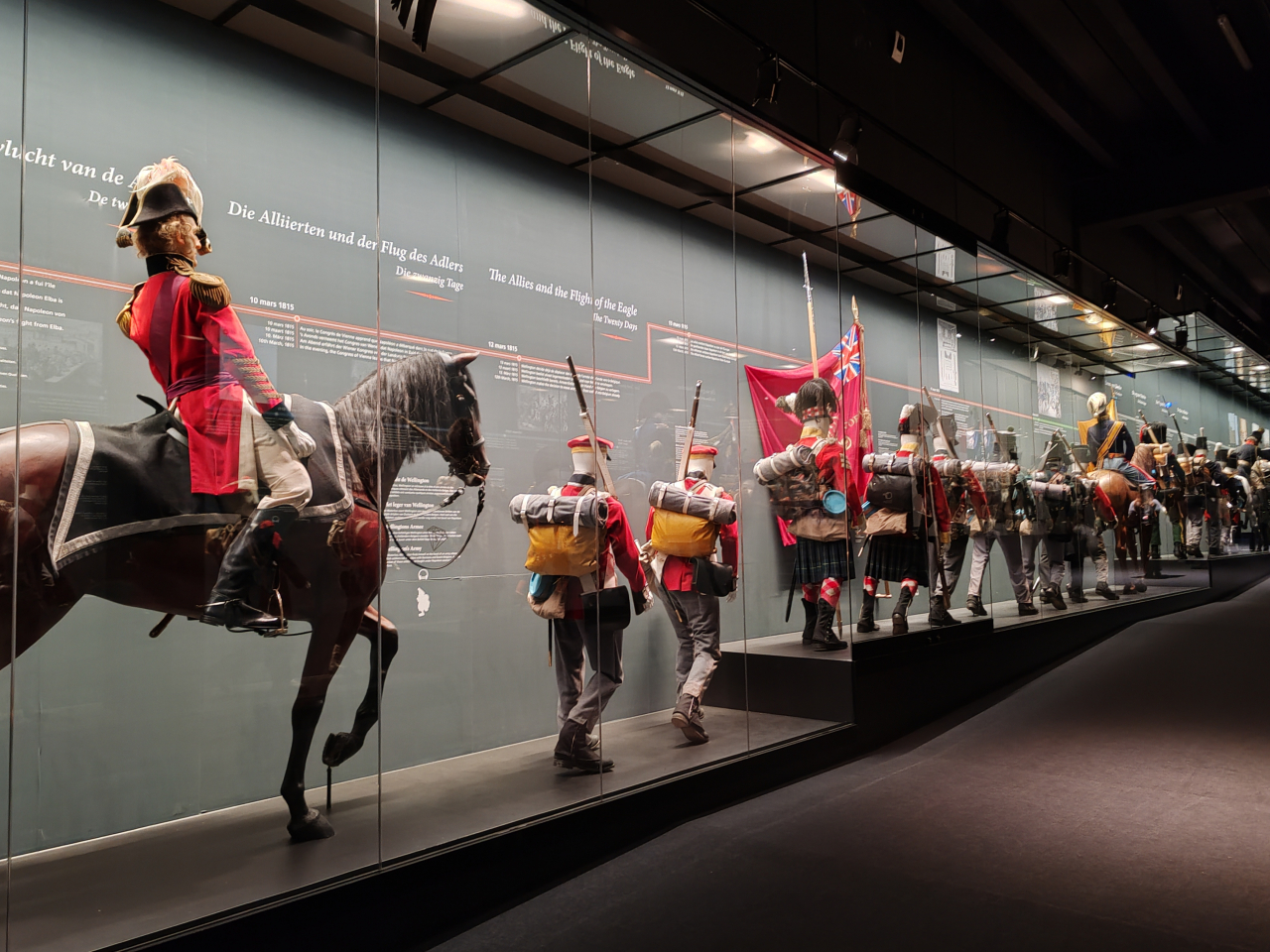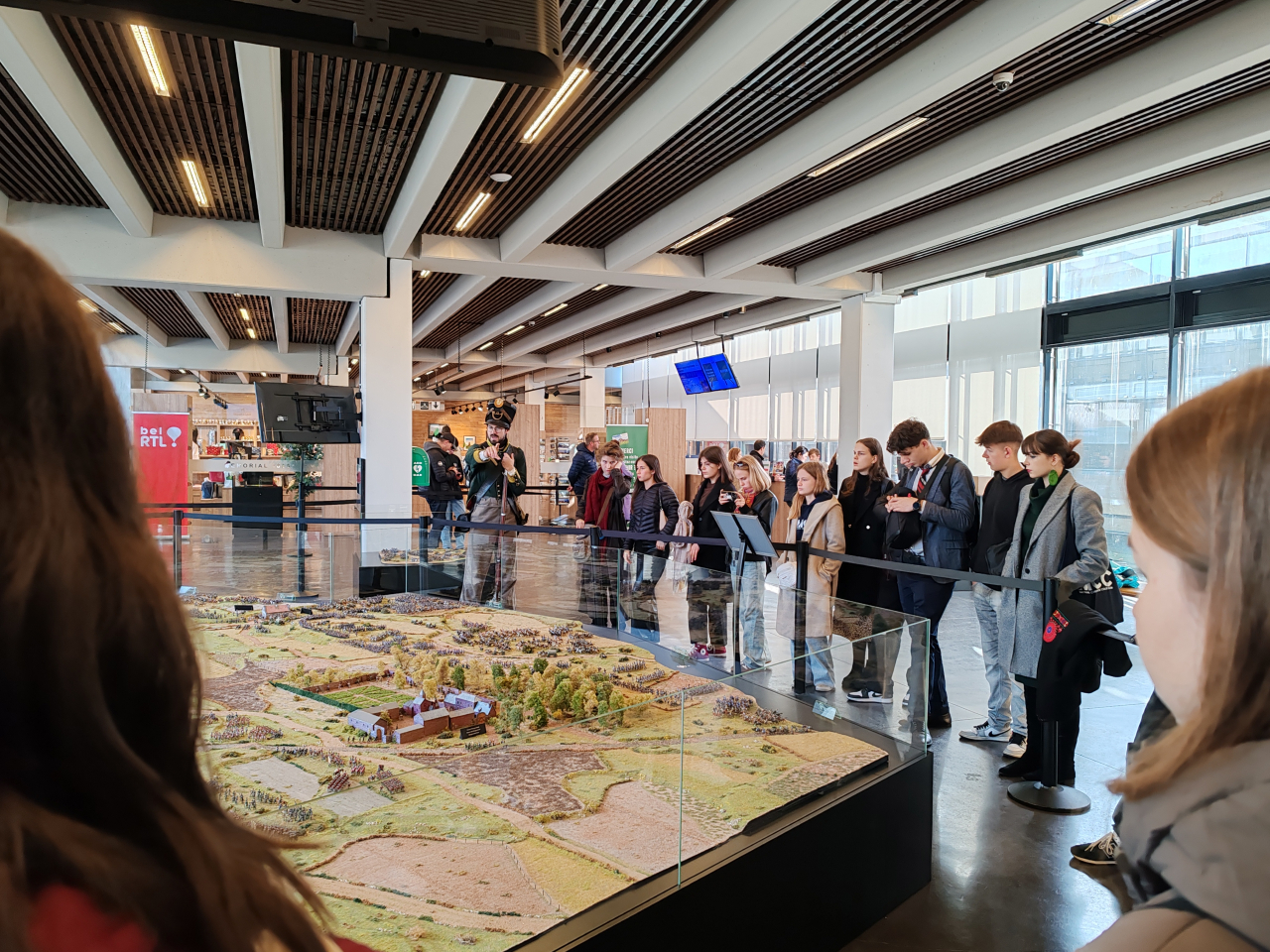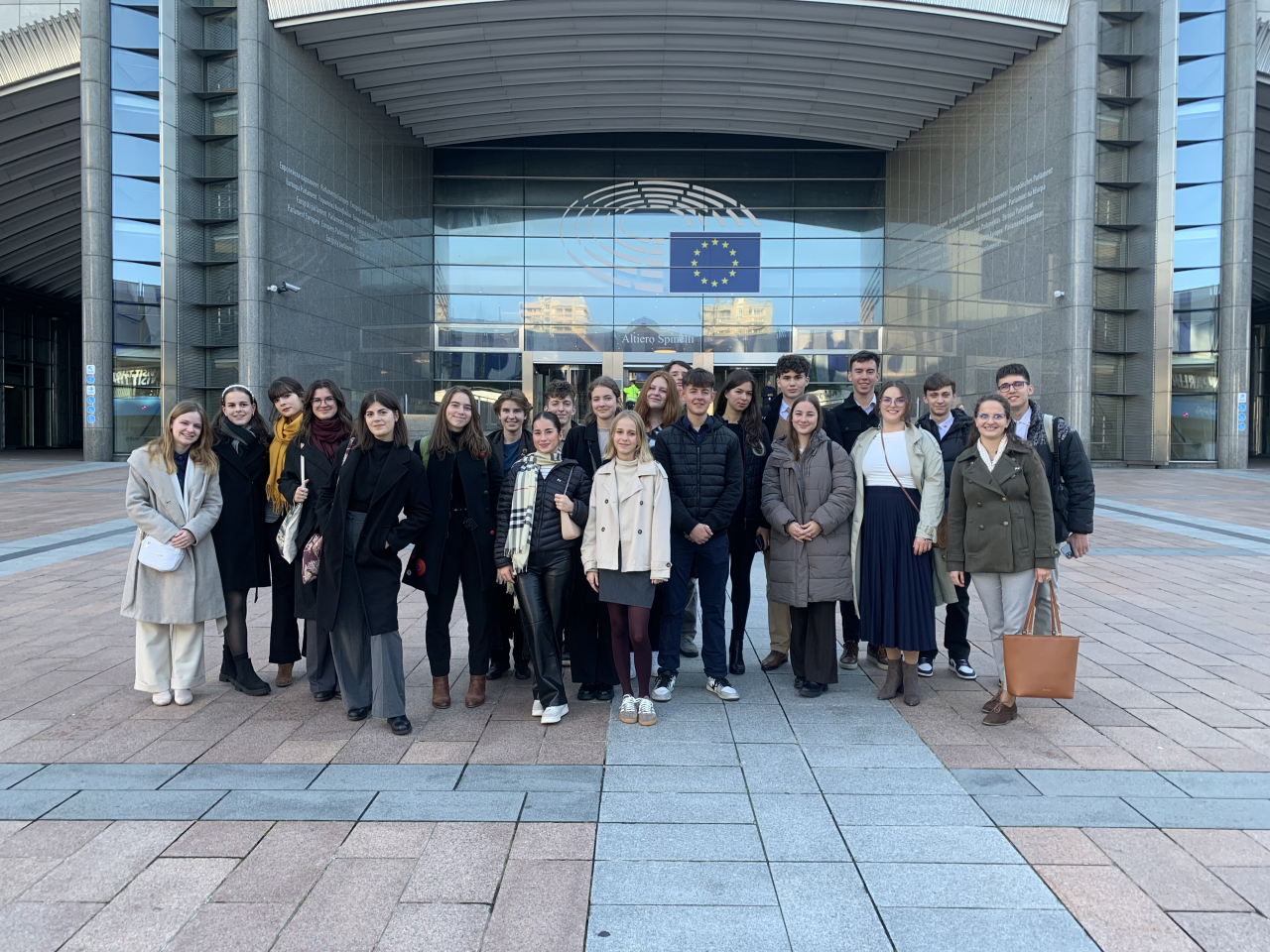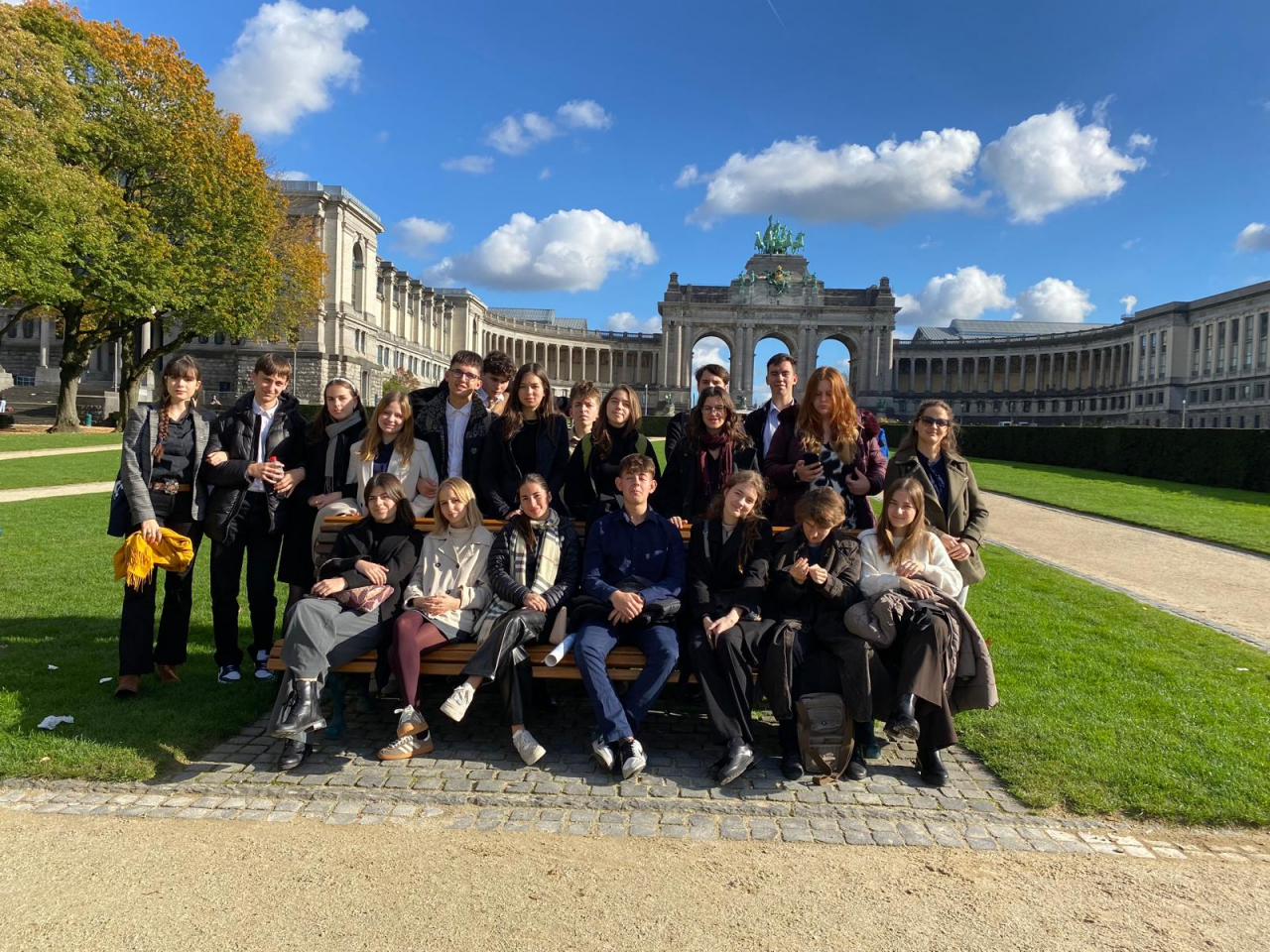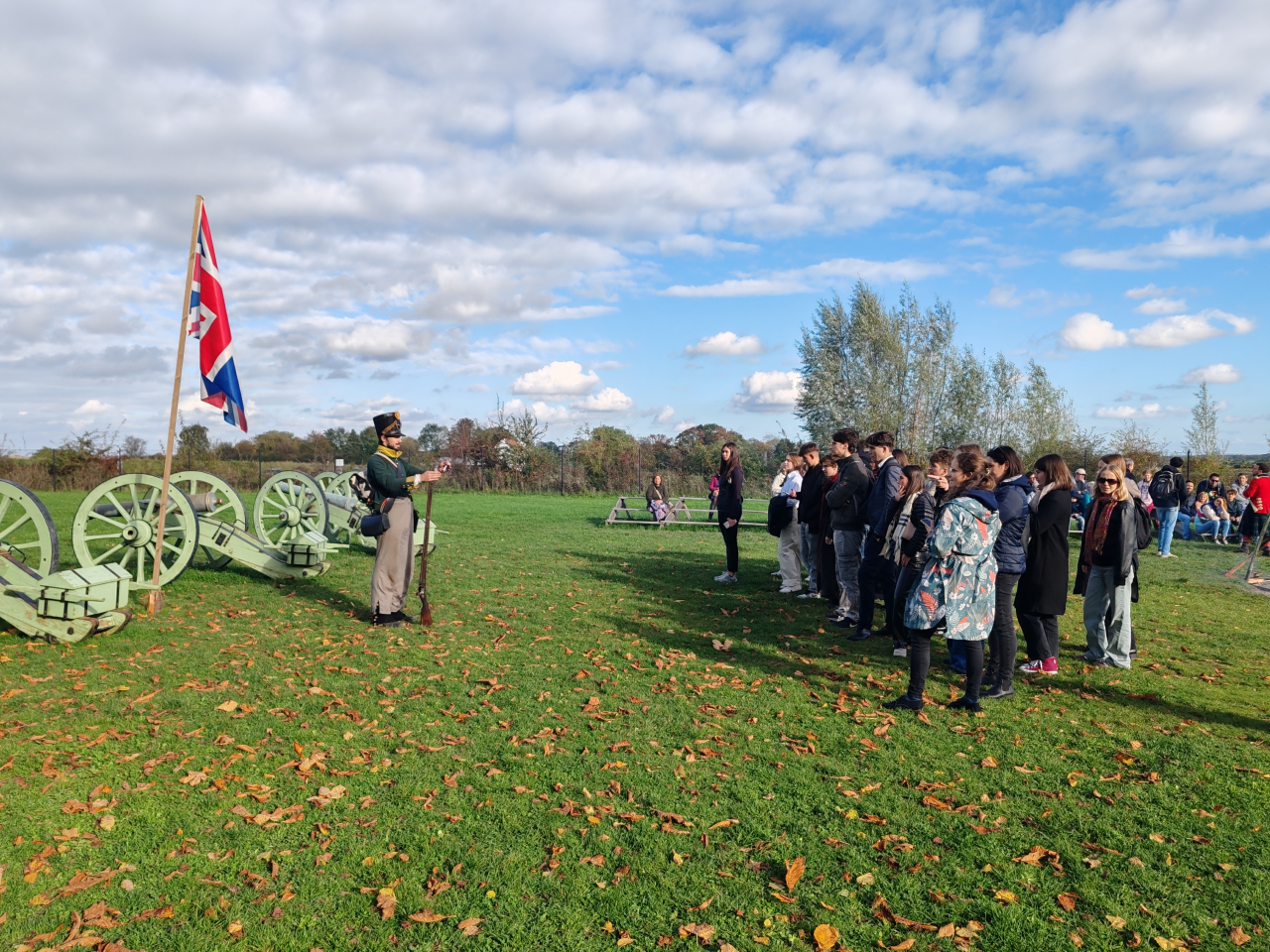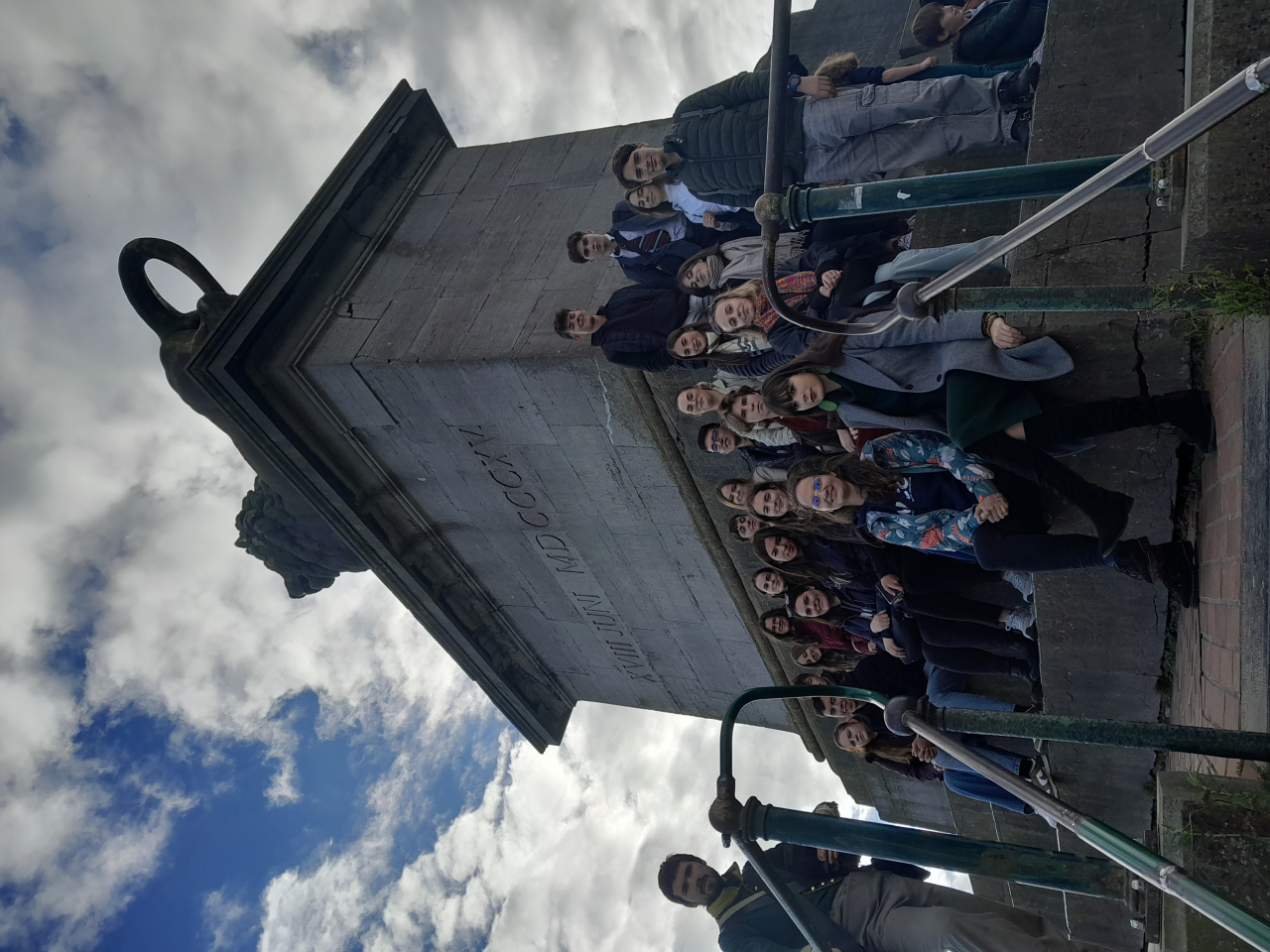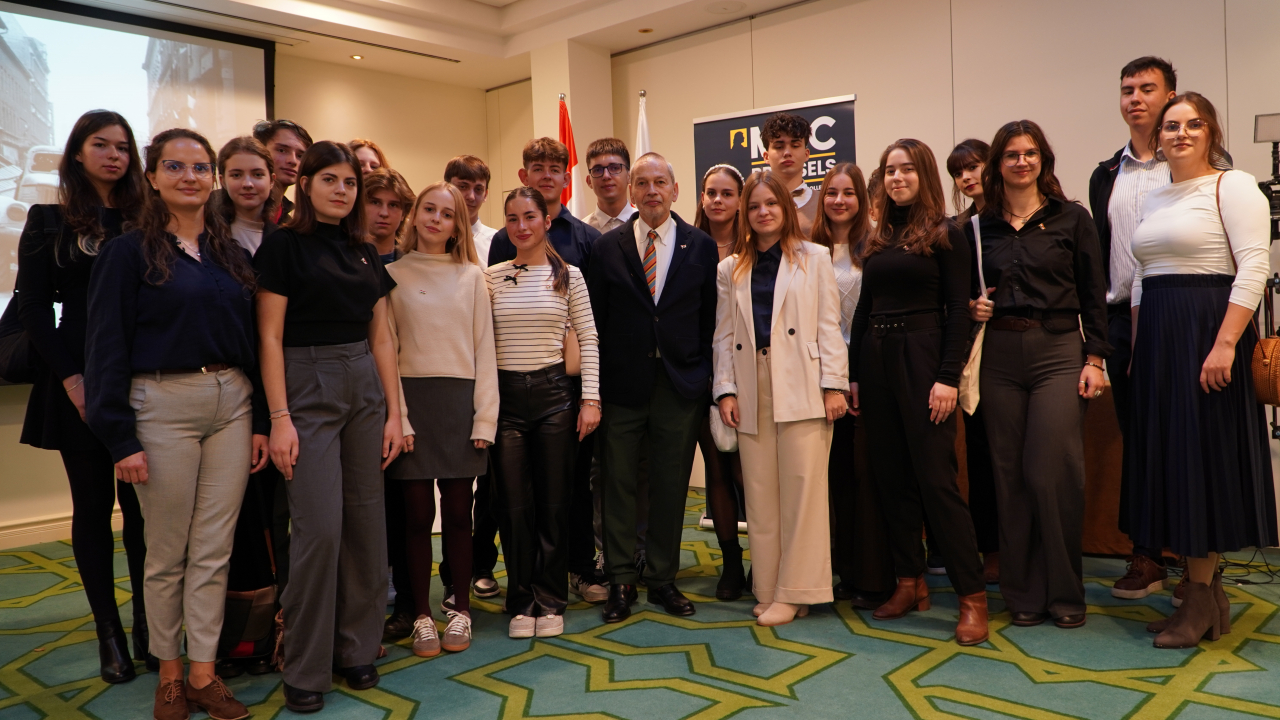Reading time: 2 minutes
This week, twenty Hungarian high school students from across Transylvania participated in an educational journey to Brussels, designed to deepen their understanding of European Union institutions and the city's rich historical context. Representing all eight MCC centers in Transylvania, this diverse group had the unique opportunity of a four-day, multifaceted trip, which fostered connections among young Hungarians and strengthened networks within the Hungarian minority in Romania.
The students’ journey included an all-day visit to the historic Waterloo Memorial, where they immersed themselves in the legacy of the Napoleonic Wars. Led by a guide in historical uniform, they toured the museum, watched a 3D battle movie, viewed a panoramic painting of the battle, climbed the iconic Lion’s Mound, and witnessed a live rifle demonstration. This hands-on experience brought history to life, deepening their understanding of European heritage in a way that classroom learning alone could not achieve.
In Brussels, the students also attended the “Freedom Breakfast” on October 23, commemorating Hungary’s 1956 Revolution. This event, held annually in Brussels, gathered intellectuals, diplomats, and the Hungarian community. Inspirational speakers included Professor Frank Füredi, Jan Tarnas, an art historian, and Hungary’s Ambassador to Belgium, Tamás Iván Kovács. The students were encouraged to reflect on Hungary’s historical struggles for freedom, gaining valuable perspectives on resilience and national identity.
Throughout their visit, MCC Brussels provided a tailored program to suit the group’s diverse ages and backgrounds. The itinerary included an introduction to EU principles, a practical debate workshop, and thought-provoking discussions on art’s social impact, activism, and moral choices in civic engagement. Students examined the difference between constructive activism and chaotic forms of protest, gaining insights into responsible advocacy. They also discussed Central European alliances and the implications for Hungarian minority rights in Romania, a subject particularly close to their own experience.
The experience extended beyond formal sessions, as the students explored Brussels through museum visits and city tours. These outings allowed them to bond with peers from different regions, fostering a stronger sense of unity within the Hungarian community in Transylvania.
